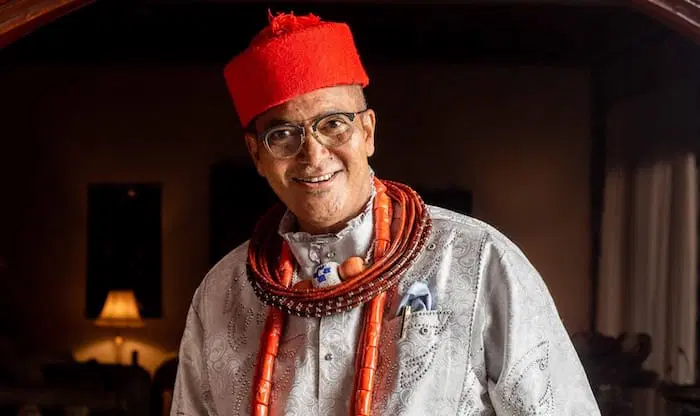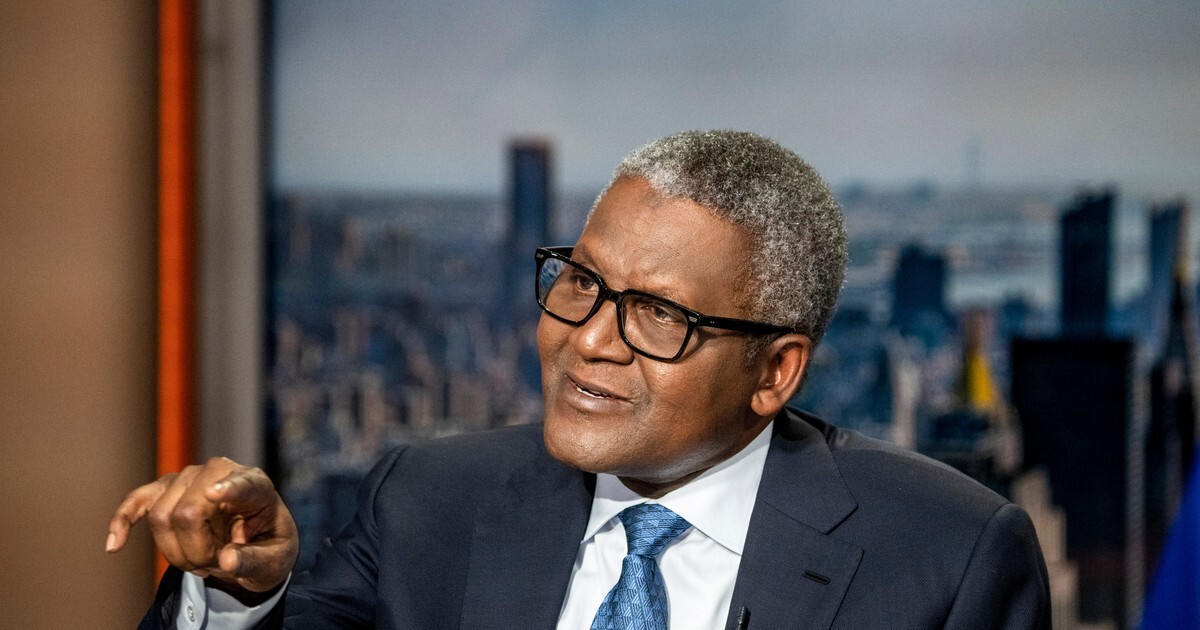The announcement that Edo State will now be part of the long-awaited Lagos-Calabar Coastal Highway marks a significant turn in Nigeria’s infrastructural and political narrative — one that intertwines decades of planning, political will, regional equity, and economic ambition. When the Minister of Works, Engr. David Umahi, stood before the audience at the Edo State Independence Gala Night inside the State Villa, Benin City, and made the declaration, it was more than a mere addition of a 100-kilometre road segment. It was a moment that symbolized inclusion, recognition, and a restoration of balance in the ambitious coastal highway project that had, until now, bypassed Edo entirely.
Umahi’s words reverberated through the gathering like an electric current. “The route was earlier announced, but unfortunately it did not include Edo State,” he admitted with characteristic frankness. “Today, the difference in length from 700km to 750km is because a miracle happened here. The President directed that the highway must run from Lagos to Ogun, Ondo, Edo, Delta, Bayelsa, Rivers, Akwa Ibom and end in Cross River.” It was a statement that not only confirmed President Bola Ahmed Tinubu’s personal intervention but also underscored the administration’s readiness to recalibrate Nigeria’s infrastructure blueprint to reflect both political inclusiveness and developmental logic.
The Lagos-Calabar Coastal Highway, often described as one of the most ambitious road projects in Africa, has a history almost as old as Nigeria’s democracy itself. Conceived nearly 47 years ago, during Tinubu’s early political journey, the project has passed through successive administrations, often discussed with optimism but rarely implemented with commitment. The highway is envisioned as a sprawling economic corridor — linking major coastal states, facilitating trade, tourism, and transport, while also spurring industrialization along the Gulf of Guinea.
For decades, however, the exclusion of Edo from the proposed alignment had sparked discontent among stakeholders in the South-South and across the state’s political spectrum. Edo, being a critical connector between the western and eastern parts of southern Nigeria, found itself inexplicably missing from a project that was meant to integrate the entire coastal region. That omission now appears corrected — and for many in attendance at the gala, it was a vindication of persistent advocacy by Edo leaders and citizens alike.
According to the statement issued by the Minister’s media adviser, Barrister Orji Uchenna Orji, the inclusion of Edo was not merely a technical adjustment but a reflection of the federal government’s responsiveness to public concerns and its resolve to ensure balanced development. Umahi, who has earned a reputation for his pragmatic engineering style and relentless oversight of major projects, made it clear that the Ministry of Works is determined to overcome the infrastructure and funding deficits inherited from previous administrations. “The President is passionate about delivering projects that will outlive his administration,” he said, assuring that both quality and timeliness will define the ongoing works.
Umahi also seized the opportunity to acknowledge the contributions of Governor Monday Okpebholo, whose intervention in the rehabilitation of the Benin-Sapele-Warri road has brought temporary relief to one of Nigeria’s most dangerous road corridors. Describing the stretch as a “death trap” for motorists, the Minister praised the state government’s proactive measures in addressing deteriorating sections of the highway pending federal reconstruction. He extended commendations to CBC, the contractor handling parts of the project, urging them to intensify their work pace and provide daily progress reports to the ministry — a measure that reflects the administration’s increasing reliance on accountability mechanisms to ensure transparency in project delivery.
In what could be seen as a rare display of intergovernmental harmony, Governor Okpebholo responded with visible emotion. Standing before dignitaries, business leaders, and civil servants, he expressed deep appreciation to President Tinubu for what he termed a “gesture of love” towards the Edo people. “Recently, I drove through this axis and was almost moved to tears seeing the state of the road,” he said, his voice reflecting both gratitude and frustration. “Our people cannot go about their daily activities without struggling on these roads. The inclusion of Edo in this highway project is a huge relief and a sign that the Federal Government has not forgotten us.”
The Governor’s remarks also took on a political tone, subtly aligning his administration’s priorities with the Renewed Hope Agenda of President Tinubu. He argued that constructive criticism of the federal government’s performance should not be seen as hostility but as a wake-up call for collaborative effort. “The President is doing his best, and criticism should serve as a wake-up call for us all. If I do my part and the Federal Government does its part, there will be no room for complaints,” he added. His statement hinted at a strategy of political alignment ahead of the 2027 general elections, signaling his intention to rally Edo’s support for Tinubu’s possible re-election bid.
Beyond the politics, however, lies the economic significance of the development. With its strategic location, Edo stands to benefit immensely from being part of the coastal corridor. Analysts have noted that the inclusion could open up new opportunities for trade, tourism, logistics, and industrial development. The coastal highway is designed to connect major seaports, free trade zones, and industrial hubs — and Edo’s addition positions it as a vital inland link to this emerging economic ecosystem.
Moreover, for a state long regarded as a cultural and historical bridge between Nigeria’s regions, the integration into the highway network carries symbolic weight. It represents Edo’s restoration to its rightful place in national infrastructure planning — a move that could stimulate investor confidence and attract both domestic and foreign investment. Already, local business communities have begun to express optimism, noting that improved road connectivity will reduce transportation costs, enhance the movement of goods, and stimulate job creation.
But even amid the excitement, questions remain about funding, timelines, and the broader execution strategy. The coastal highway, estimated to cost billions of naira, is being executed under a public-private partnership model, with expectations of phased completion. The inclusion of an additional 100 kilometres for Edo State implies further financial and engineering adjustments. Some civil engineers argue that this extension could require new environmental impact assessments, rerouting, and community consultations — particularly because the new segment may cut through forested and agricultural areas.
Umahi, however, has been consistent in his assurance that all technical and environmental standards will be adhered to. Under his watch, the Ministry of Works has introduced innovations such as rigorous geotechnical surveys, fiber-reinforced concrete designs, and digital monitoring systems to track progress in real-time. “We are not just building roads,” he often says, “we are building infrastructure that will stand the test of time.”
Political observers also note that the move could have strategic implications beyond infrastructure. Including Edo in the highway may serve to strengthen the federal government’s political influence in the South-South region, particularly as the 2027 elections approach. The Tinubu administration, which has faced criticism from parts of the region over perceived neglect, may now find in this gesture an opportunity to mend political fences and project a narrative of inclusivity.
For many Edo residents, however, the focus is less on politics and more on impact. In communities across the state, road construction has long been a matter of survival. Farmers struggle to transport their produce to markets, traders endure rising transportation costs, and commuters risk their lives daily on deteriorating federal roads. The announcement that a new, modern highway — backed by federal commitment — will pass through their land is a source of hope.
Economic experts suggest that once completed, the highway could transform Edo’s landscape in profound ways. Towns along the route may experience urban expansion, new real estate developments, and increased tourism activity. The project also promises to boost Edo’s internal revenue generation through improved access to trade corridors connecting western and eastern Nigeria.
Still, challenges abound. Funding delays, land compensation disputes, and contractor inefficiencies have historically plagued federal infrastructure projects in Nigeria. Umahi’s insistence on daily progress reporting and strict supervision is an attempt to avoid the pitfalls that have derailed similar mega-projects. His engineering background — as a former governor and civil engineer — positions him uniquely to oversee the technical complexities involved.
The timing of the announcement also bears symbolic importance. Coming during the state’s Independence Gala Night, the inclusion of Edo in the Lagos-Calabar Coastal Highway evokes a sense of renewal and unity. It aligns with the broader national message of rebuilding and reconnecting Nigeria’s regions through infrastructure, a central pillar of the Renewed Hope narrative championed by Tinubu’s government.
As the night ended in Benin City, conversations around the gala hall reflected cautious optimism. Businessmen talked about logistics hubs and hospitality investments. Civil servants discussed reduced travel times and safety improvements. Political analysts saw the decision as a deft move that could redefine federal-state relations. And ordinary citizens — from Okada riders to traders — simply hoped the promise would not fade into another government headline.
In the final analysis, the extension of the Lagos-Calabar Coastal Highway to Edo is more than a bureaucratic announcement. It is a recalibration of Nigeria’s infrastructural vision — one that acknowledges past omissions and seeks to build a more interconnected, inclusive federation. Whether this “miracle,” as Umahi called it, will translate into asphalt reality depends on political will, technical discipline, and sustained public oversight.
But for now, Edo stands on the threshold of transformation, its highways poised to connect not only cities and states but also the aspirations of millions who have long waited for development to arrive at their doorstep. In the words of a jubilant guest at the gala, “This is not just a road — it is a bridge to our future.”




